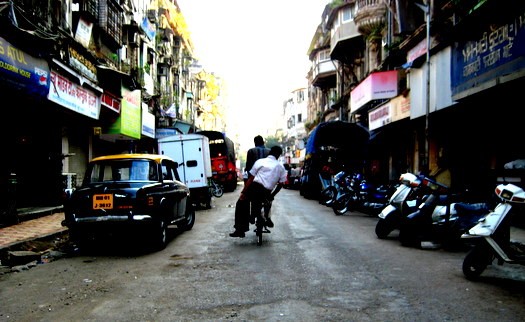There's a lot of animated chatter among some of my favorite journalists over the redesign of their publication's site. Last week, the Atlantic Monthly rolled out what appears to the casual reader as a slight update of the IA, along with some major changes to the way that blogs are integrated. Reader reaction was anything but casual; anger and suspicion seemed to be the most common reader emotions, shared, at least in part, by the writers. The Washington Post's Ezra Klein nails the goal of the redesign, "Seems like a bet to re-center the Web site around the Atlantic as an institution rather than leaving it as a web hosting service for a couple of bloggers." Which seems smart, actually.
 This clustercuss is the redesign. (I can't find a picture of the "before," but it wasn't really too different, to the casual observer).
This clustercuss is the redesign. (I can't find a picture of the "before," but it wasn't really too different, to the casual observer).The real problem: The redesign isn't radical enough.It simply shifted content around — a sure-fire bet to piss off regular readers. The redesign doesn't address bigger problems around findability, readability, navigability, whatever you want to call a lingering sense of not being able to get around easily. It also breaks from a common blog convention: homepages that includes lengthy content for each post (UPDATE: they've changed this). The biggest change is that they've moved away from individual blogs as linear, ever-expanding solo narratives, which I think is interesting. What they're moving toward is less clear.According to spirited commentary by the Atlantic writers, the redesign was driven by the arcane calculus of advertising. I won't pretend to know how online ad placement works in a place like The Atlantic, but what I do know is that someone told them to spread their fresh content around, and it's kinda half-spread.I am a big Atlantic reader. I subscribe to the print edition, and I regularly read three of its bloggers — Ta-Nehisi Coates, James Fallows and Andrew Sullivan. I subscribe to their feeds, so I don't go to theatlantic.com unless I want to comment on Coates' blog, or read comments, which means I'll head there a couple of times a week, but when I get there I'll be deeply immersed in a thread.To me, the true opportunity was to leverage the sprawling, smart conversations that these writers continually create — to create a sort of salon among the readers and writers. To Klein's point above, you'd think a virtual salon would be exactly the kind of thing that would "re-center" the brand. Breaking out of the conventional blog model is a reasonable first step. Blogs are long threads, and maintaining individual threads needlessly inhibits wider-scale conversation. So they've taken that half-step away from threads (which are a helpful organizing principle for readers), but the salon is nowhere in sight. And this is a problem.
